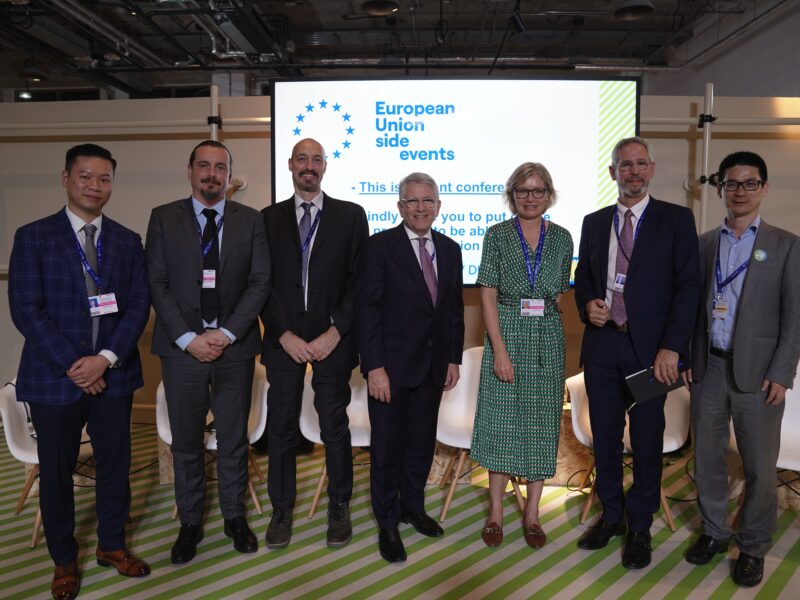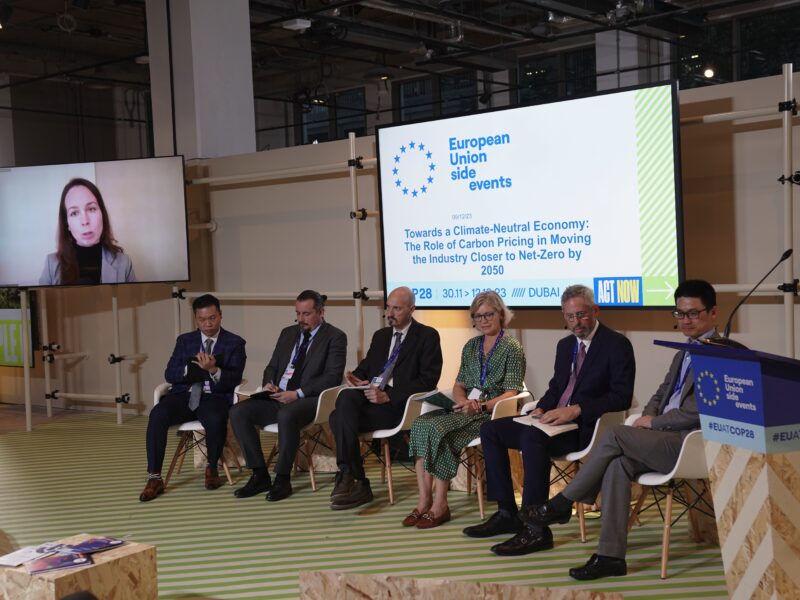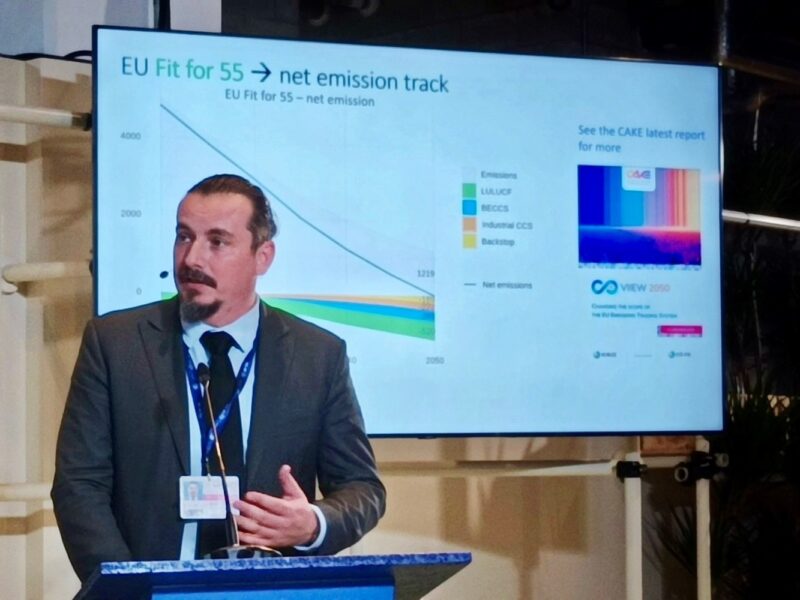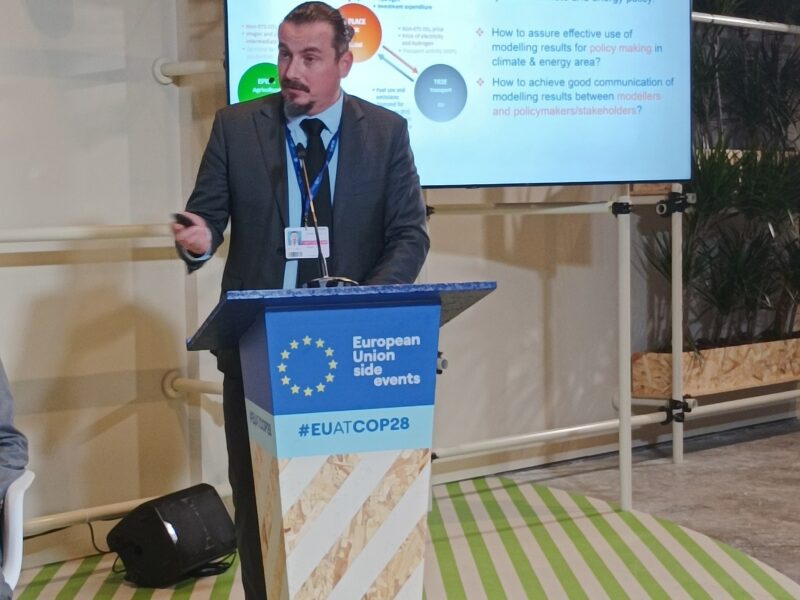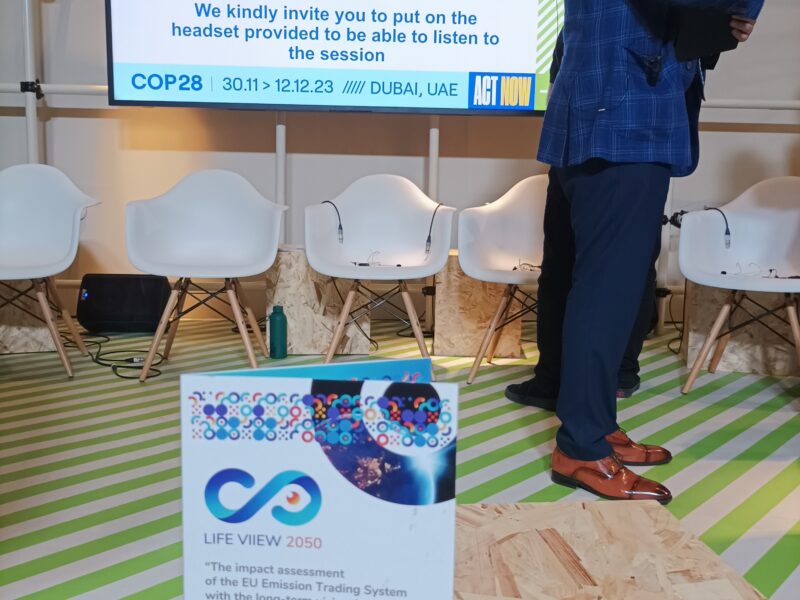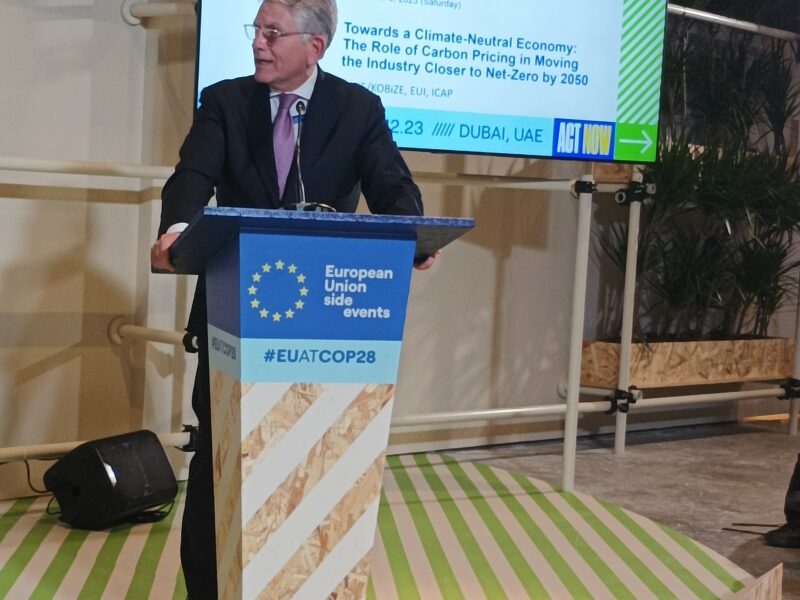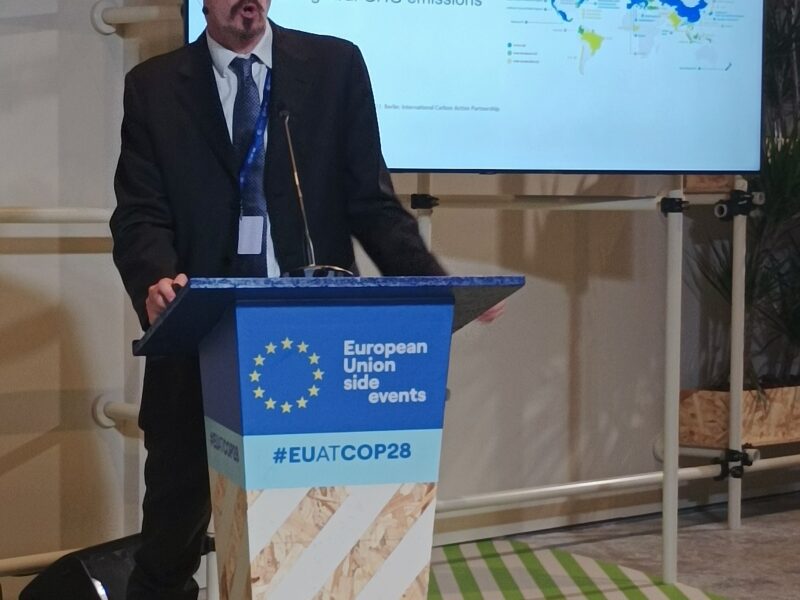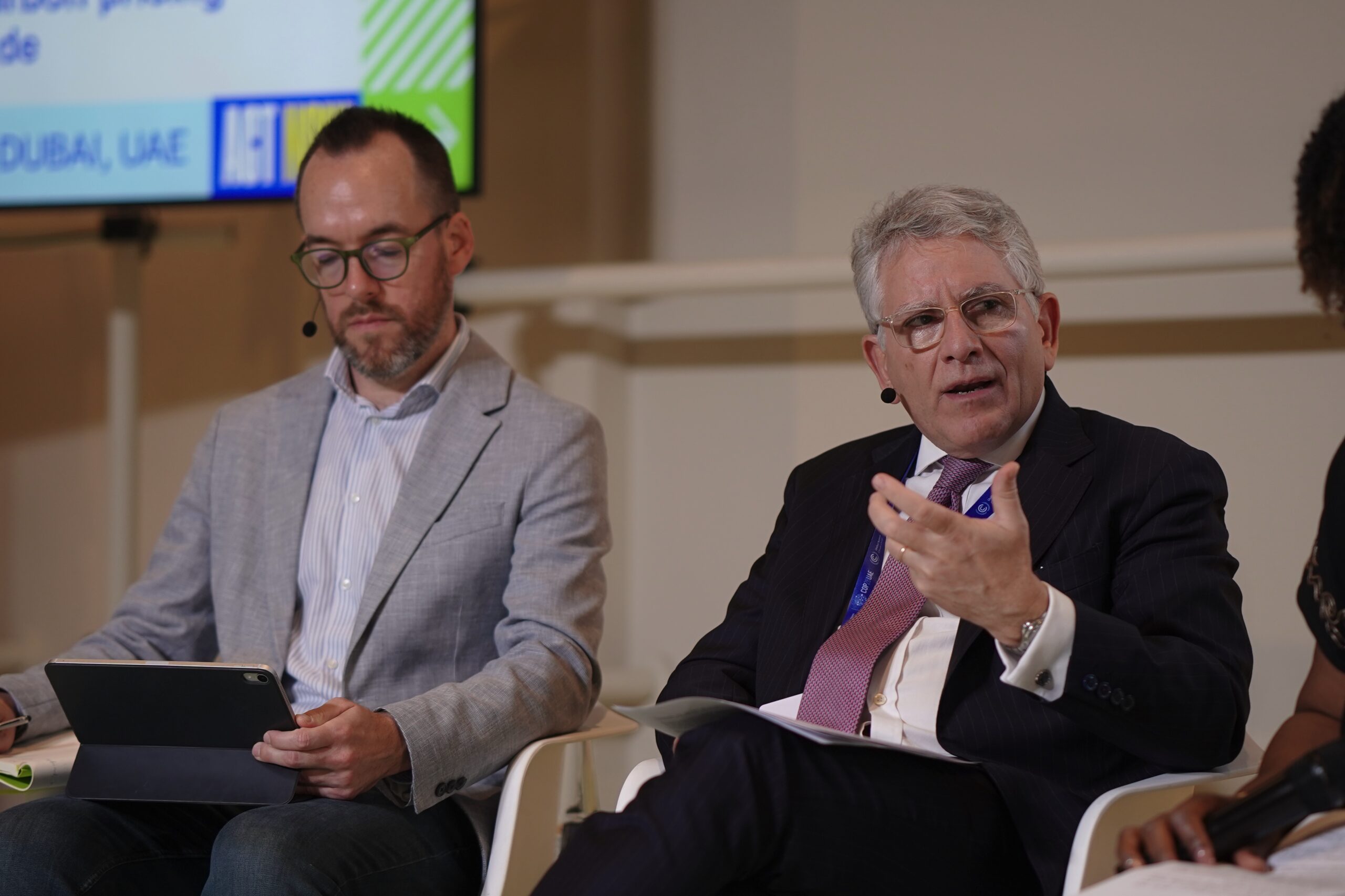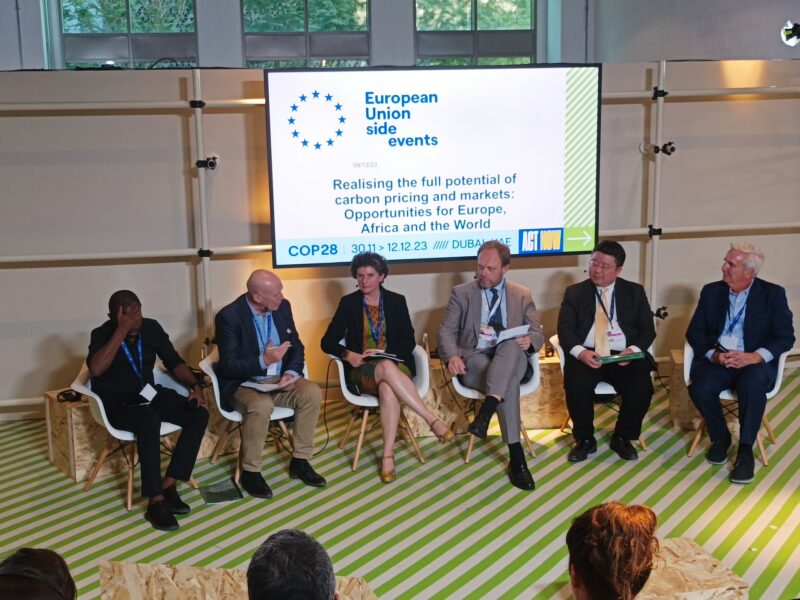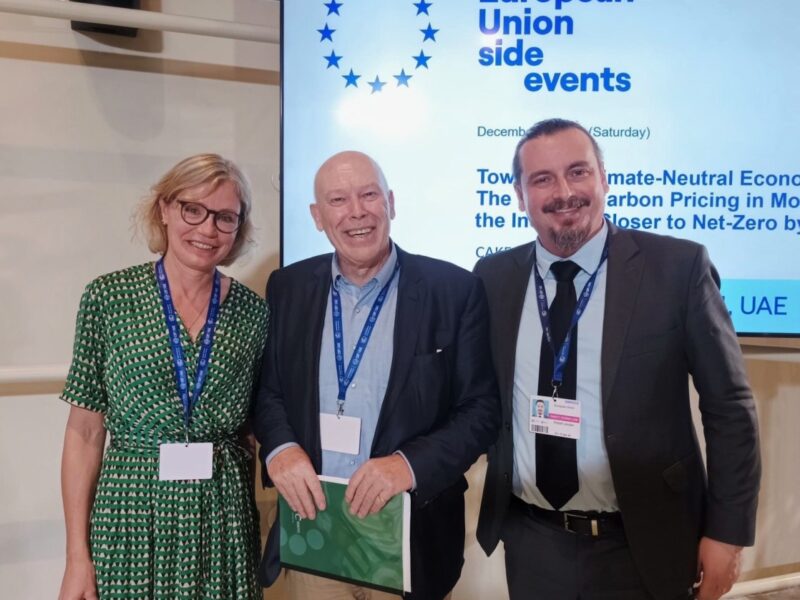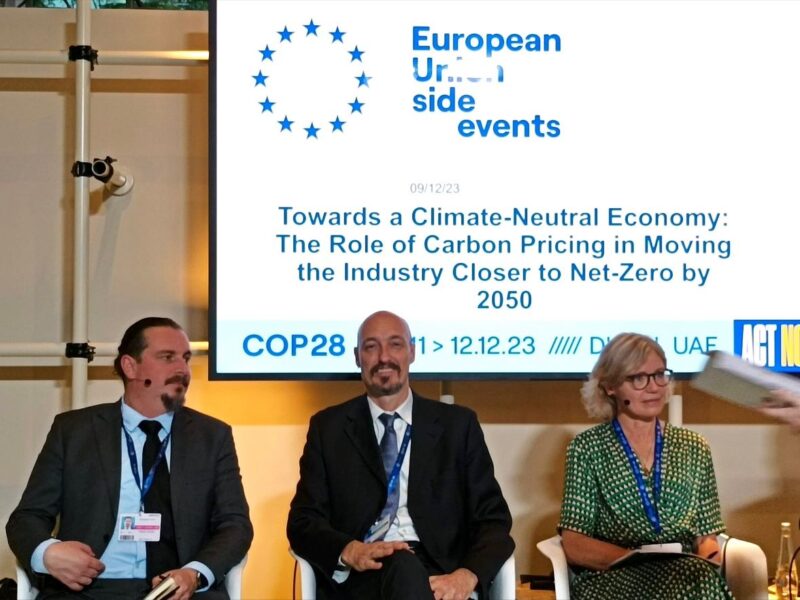After COP28: CAKE Team’s Insights on Carbon Pricing, EU ETS Developments, and Global Impacts
COP28 has just come to an end, so we all can share our first reflections on both the process and the outcomes. The CAKE team took part in this largest ever COP. Although we have been observing the entire process, given the nature of our work we have involved mainly in inspiring debates focused on carbon pricing, including development of the EU ETS and satellite measures such as CBAM, and their impacts on both the EU Member States as well as the EU trade partners and candidate states.
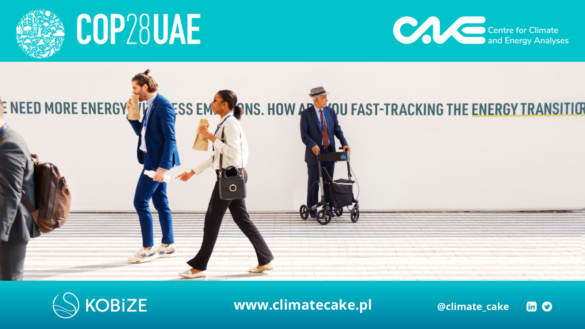
The most interesting takeaways to our team came from the series of side-events in the EU Pavilion on Saturday, Dec 9. – a day dedicated to carbon pricing. As the EU is currently implementing the Fit for 55 package, a growing range of carbon pricing measures and their impacts on both the EU and worldwide economies were in the centre of debate. While we can acknowledge the EU ETS expansion, some concerns regarding its future operation have been addressed. It seems that EU ETS undoubtedly needs modifications as we can expect depletion of the emission allowances supply well before 2050.
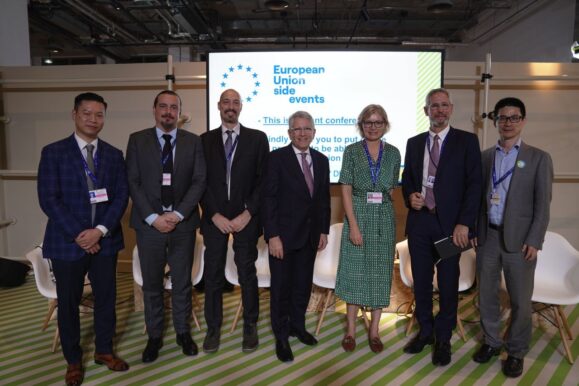
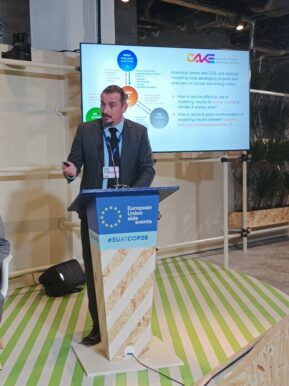
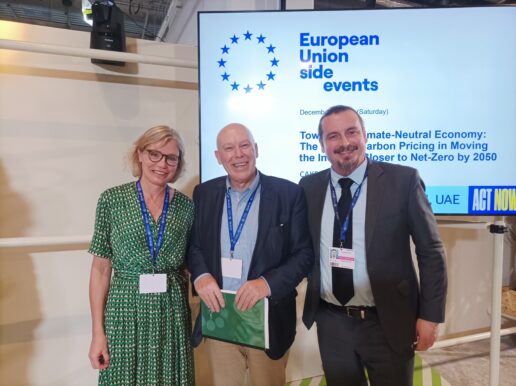
Increasing carbon pricing mechanisms in the EU unquestionably affect not only neighbouring countries, but also the rest of the world. The implementation of CBAM causes not only increased interest in neighbouring countries, but also some concerns, what was discussed on another side-event “Realising the full potential of carbon pricing and markets: Opportunities for Europe, Africa and the World” in the EU Pavilion. While developed countries support and follow the EU initiatives, developing economies might feel threatened. In this context the role of revenue streams and their proper use in maintain the two important goals, such as emission reduction worldwide as well as continuous assistance to developing countries to decouple economic growth from emissions must be emphasized.
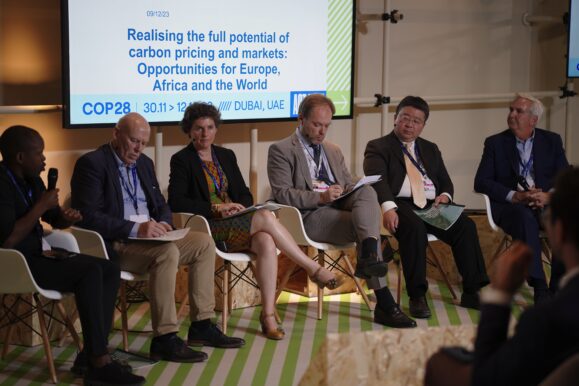
Rationale for implementing carbon pricing measures worldwide and their role in encouraging global companies in energy intensive industries only to embrace greener and more sustainable technologies was addressed by panellists of the side-event “The role of Carbon Border Adjustment Mechanisms in promoting carbon pricing initiatives worldwide” organized by TAXUD in the EU Pavilion. Inspiring discussion concluded with a question whether we have a viable alternative to carbon pricing? It seems clear that the regulation alone is far ineffective and all should intensify collaboration to ensure the integrity of carbon pricing mechanisms. In this context, it is worth highlighting the support that carbon pricing, especially emission trade, receive from the industry. The mechanisms themselves are not questioned, but the importance of integrity, transparency and predictability is emphasized.
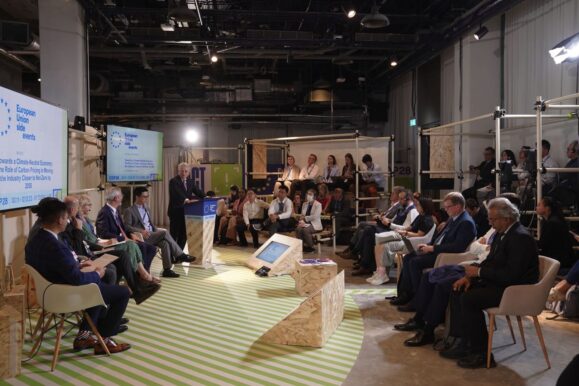
The CAKE team is truly satisfied that the topics we cover turned out to be such an important element of the debate during COP28. Although we are a bit disappointed that COP28 ended with no deal on art. 6 and carbon markets, the overall experience gives us a strong incentive for further work, including our new project ENSPIRE we are preparing – regarding the development and expansion of the EU ETS system beyond the EU.
Stay tuned!

 Reset ustawień
Reset ustawień Kontrast
Kontrast Widok
Widok Czytelność
Czytelność Czcionka
Czcionka Znaki
Znaki Interlinia
Interlinia Słowa
Słowa Akapity
Akapity Deklaracja dostępności
Deklaracja dostępności




